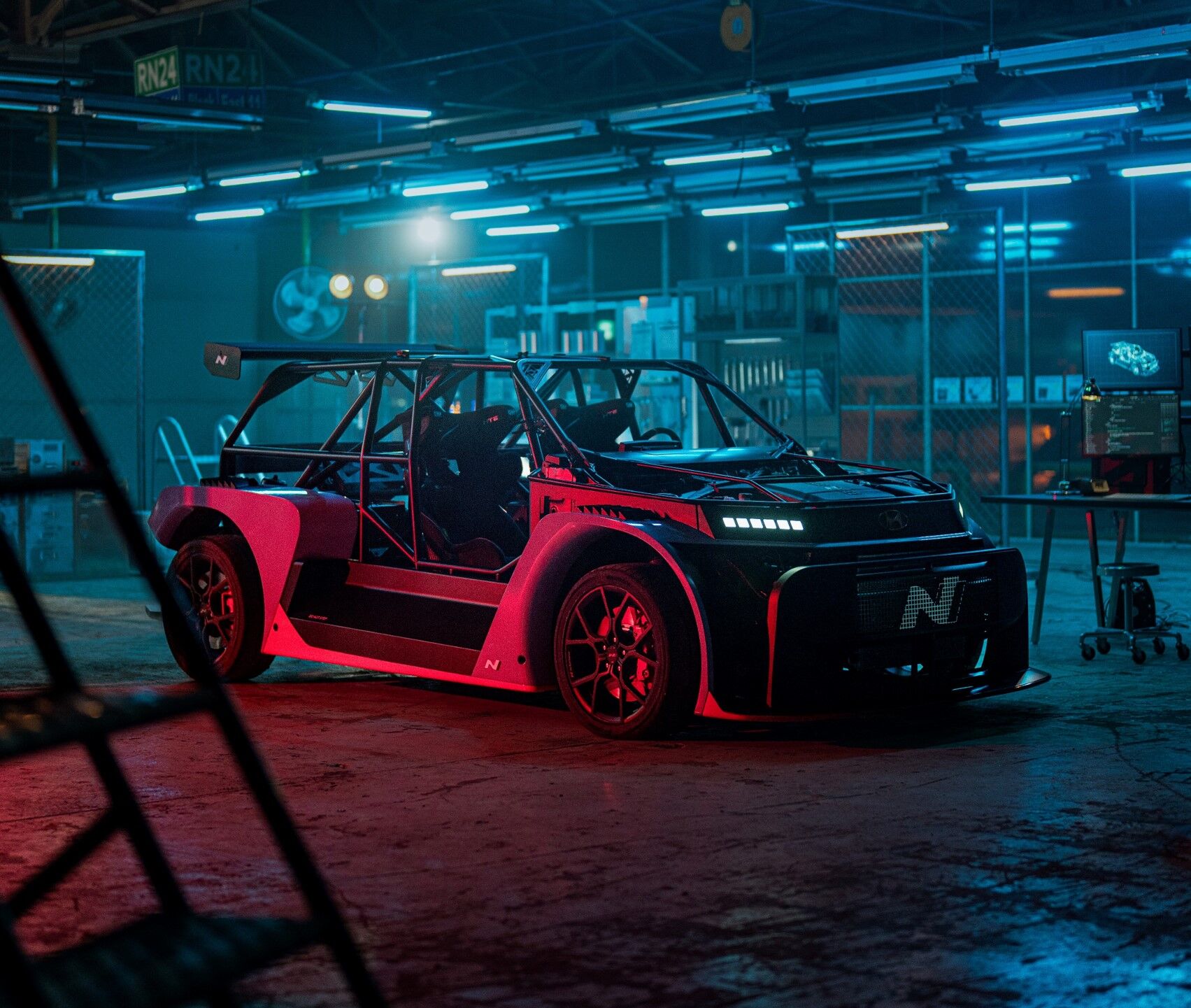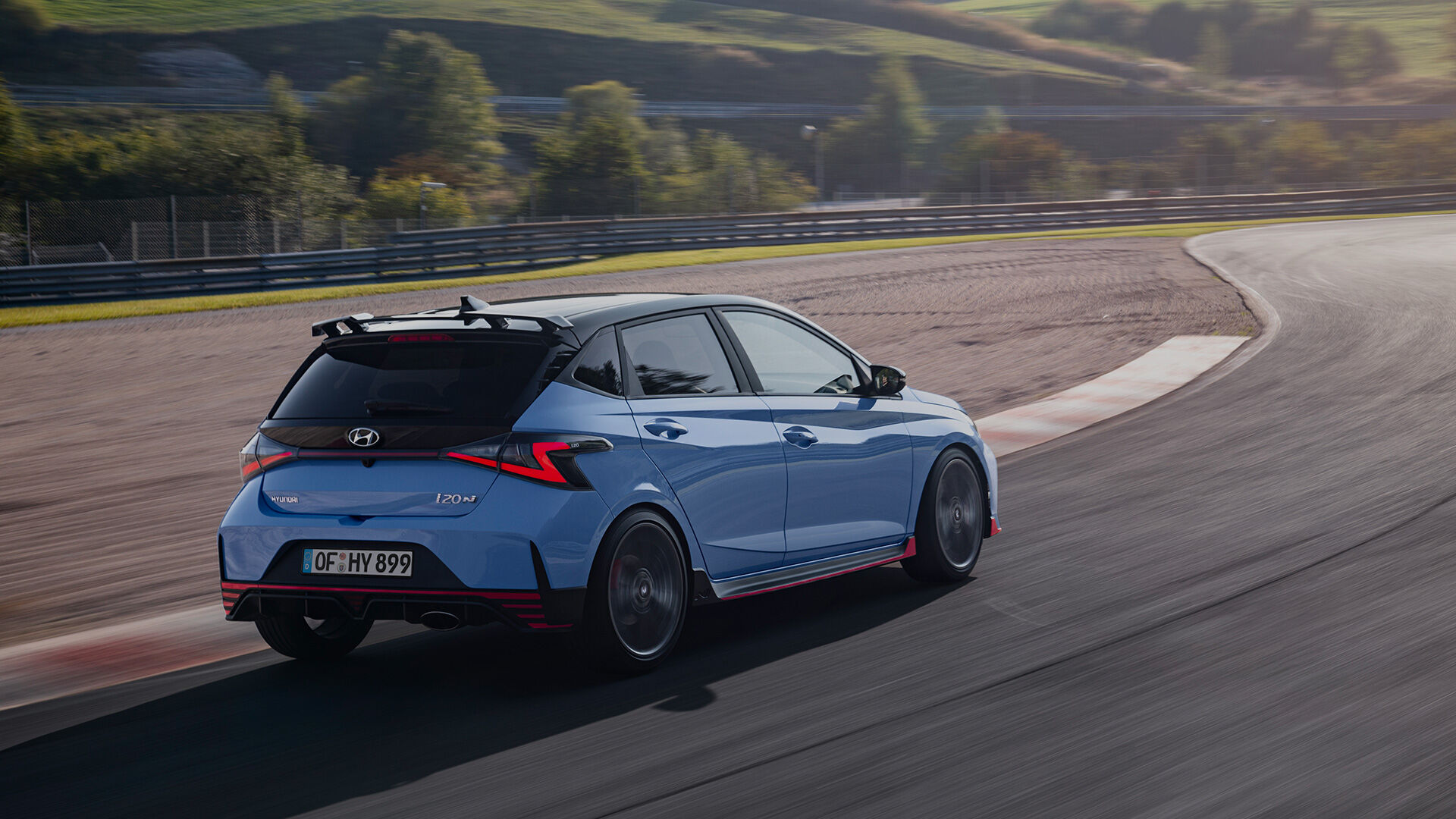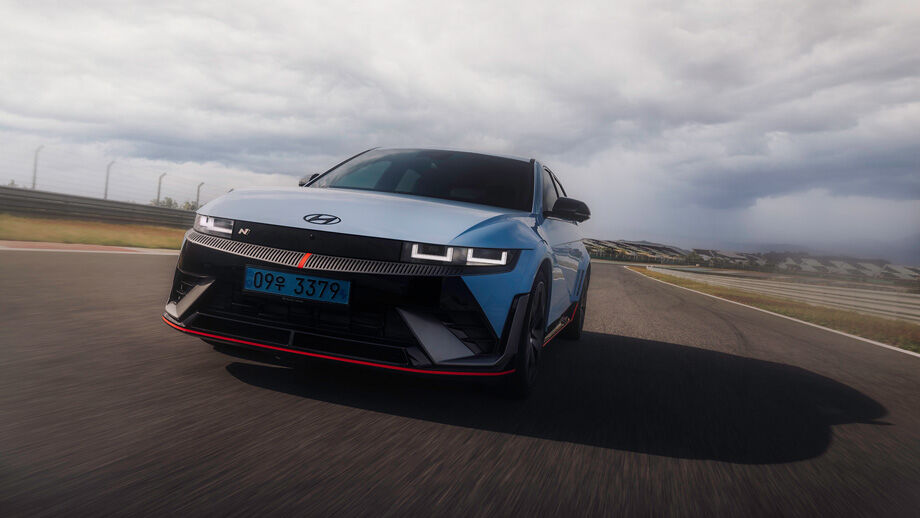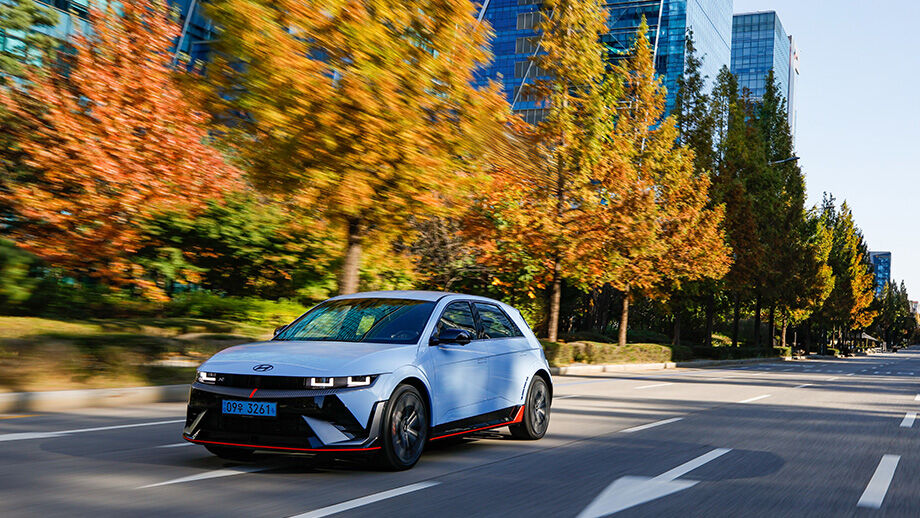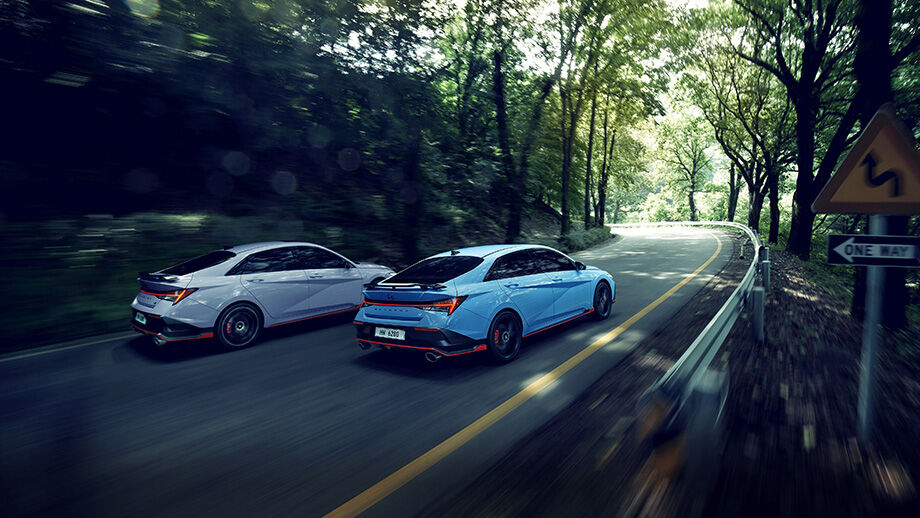- Hyundai i20 N has been named overall Car of the Year at Top Gear’s annual awards, outperforming cars from across the world’s most evocative brands
- Hyundai Motor was bestowed with Manufacturer of the Year, recognising overall breadth of ability across model line-up and diverse cast of characters on sale
Hyundai Motor has taken highest honours at the Top Gear annual awards 2021, winning Car of the Year with i20 N and being named overall Manufacturer of the Year in recognition of the brand’s class leading model line-up.

The i20 N recently triumphed at the Top Gear Speed Week test to claim coveted Performance Car of the Year title from a group of 26 contenders during a series of thorough tests. The judging panel – comprised of Top Gear’s expert editorial team alongside Chris Harris and The STIG – crowned the i20 N overall winner after a series of gruelling tests against models from some of the most evocative performance car brands in the world. The combination of i20 N’s thrilling handling and rounded abilities ultimately won the team over.
Executive Vice President, Global Chief Marketing Officer at Hyundai Motor Company
President and CEO of Hyundai Motor Europe

Vice President, Head of N Brand Management Motorsport Sub-Division at Hyundai Motor Company
Editor of Top Gear Magazine
In addition, the Top Gear team lauded the breadth of talent across the entire Hyundai model range, honouring the company with Manufacturer of the Year.
Editor of Top Gear Magazine
Disclaimer: CO2 and emissions data
- Fuel consumption combined for the Hyundai i20 N 1.6 T-GDI (204 PS) with 6MT in l/100 km: 6.9; CO2 emissions combined in g/km: 158 (WLTP)
- Fuel consumption combined for the Hyundai i30 N 2.0 T-GDI (250 PS) with 6MT in l/100 km: 7.7; CO2 emissions combined in g/km: 175 (WLTP)
- Fuel consumption combined for the Hyundai i30 N 2.0 T-GDI (280 PS) with 6MT in l/100 km: 8.0; CO2 emissions combined in g/km: 182 (WLTP)
- Fuel consumption combined for the Hyundai i30 N 2.0 T-GDI with N DCT in l/100 km: 8.4; CO2 emissions combined in g/km: 191 (WLTP)
- Fuel consumption combined for the Hyundai IONIQ Hybrid in l/100 km: 5.2 - 4.4; CO2 emissions combined in g/km: 119 - 100 (WLTP)
- Electricity consumption combined for the Hyundai KONA Electric 39.2 kWh in kWh/100 km: 14.3; CO2 emissions combined in g/km: 0 (WLTP)
- Electricity consumption combined for the Hyundai KONA Electric 64 kWh in kWh/100 km: 14.7; CO2 emissions combined in g/km: 0 (WLTP)
- Fuel consumption combined for the Hyundai KONA N 2.0 T-GDI (280 PS) with DCT in l/100 km: 8.5; CO2 emissions combined in g/km: 194 (WLTP)
- Hydrogen consumption combined for the Hyundai NEXO in kg H2/100 km: 0.95; CO2 emissions combined in g/km: 0 (WLTP)
- Electricity consumption combined for the Hyundai IONIQ 5 58 kWh (19” alloy rims) with 2WD in kWh/100 km: 16.7; CO2 emissions combined in g/km: 0 (WLTP)
- Electricity consumption combined for the Hyundai IONIQ 5 58 kWh (19” alloy rims) with 4WD in kWh/100 km: 18.1; CO2 emissions combined in g/km: 0 (WLTP)
- Electricity consumption combined for the Hyundai IONIQ 5 72.6 kWh (19” alloy rims) with 2WD in kWh/100 km: 16.8; CO2 emissions combined in g/km: 0 (WLTP)
- Electricity consumption combined for the Hyundai IONIQ 5 72.6 kWh (20” alloy rims) with 2WD in kWh/100 km: 17.9; CO2 emissions combined in g/km: 0 (WLTP)
- Electricity consumption combined for the Hyundai IONIQ 5 72.6 kWh (19” alloy rims) with 4WD in kWh/100 km: 17.7; CO2 emissions combined in g/km: 0 (WLTP)
- Electricity consumption combined for the Hyundai IONIQ 5 72.6 kWh (20” alloy rims) with 4WD in kWh/100 km: 19.0; CO2 emissions combined in g/km: 0 (WLTP)


